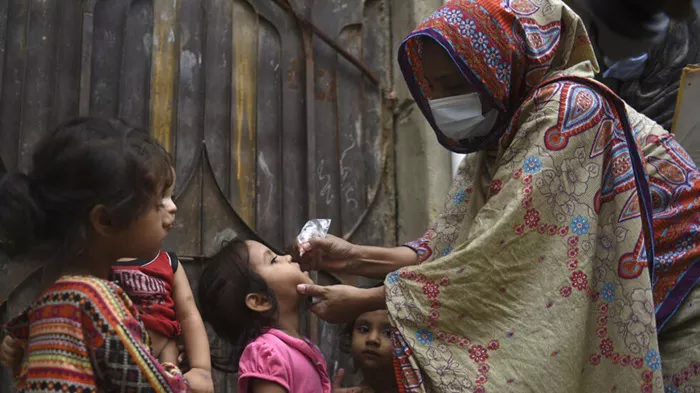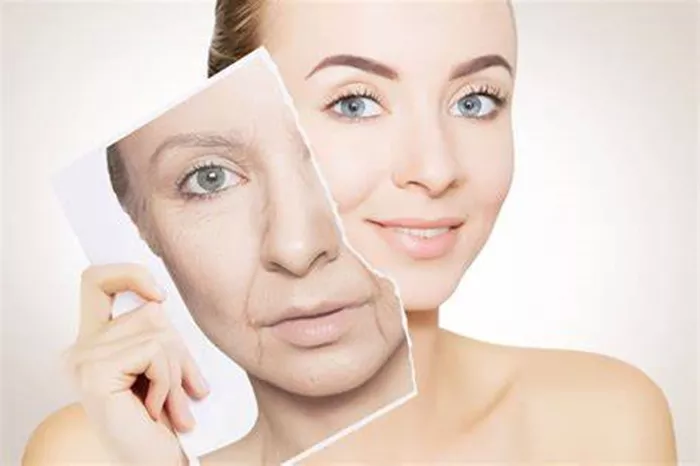In Gaza, a mother’s fears for her newborn son’s health have intensified following the Palestinian health ministry’s confirmation of the first polio case in the enclave in 25 years. Ghada al-Ghandour’s son, Mohammed, who is just one month old, has not received his initial polio vaccine. The resurgence of the virus in the war-torn region has exacerbated anxieties about the wellbeing of children like Mohammed.
Mohammed began showing signs of illness just three days after birth, with skin rashes that resembled burns, according to his mother. Despite seeking medical advice, the lack of available creams and treatments in Gaza has only heightened her worries.
Driven by concern, Ghada took her son to Al-Aqsa Martyrs Hospital in Deir al-Balah, central Gaza, in search of a diagnosis and treatment. Her fears have been compounded by the deteriorating hygiene conditions and the severe shortage of medical supplies in the area, consequences of over ten months of ongoing conflict.
On Friday, the Palestinian health ministry confirmed that the first polio case had been detected in Deir al-Balah in a 10-month-old baby who had not been vaccinated. Similarly, Mohammed, like many other children in Gaza, has yet to receive his polio vaccine, leaving him vulnerable to the highly infectious disease.
“My son was deprived of the first vaccine in his first month,” Ghada lamented.
Polio, which primarily spreads through the fecal-oral route, is notorious for its ability to invade the nervous system and cause paralysis. Children under five are particularly at risk, with infants under two being the most vulnerable due to the disruption of normal vaccination regimens by the ongoing war.
Dr. Hamid Jafari, a polio specialist at the World Health Organization (WHO), reported on August 7 that polio was detected in sewage samples from Deir al-Balah and Khan Younis governorates. He warned that the virus might have been circulating since September, posing a significant threat to the region’s children.
“The occupation’s (Israeli forces) continued closure of border crossings and denial of access to vaccines could lead to a health disaster,” warned Khalil al-Daqran, spokesperson for Al-Aqsa Martyrs Hospital.
In response, Israel announced on Sunday that it would facilitate the transfer of polio vaccines into Gaza, aiming to immunize approximately one million children. A statement from COGAT, the Israeli defense agency that coordinates civilian affairs with the Palestinians, confirmed that over 43,000 vials of the vaccine are expected to arrive in Israel in the coming weeks before being sent to Gaza. This supply would be sufficient for two rounds of doses for the targeted children.
However, al-Daqran cautioned that a successful vaccination campaign would require a cessation of hostilities.
The WHO echoed this sentiment, stating on August 16 that the reemergence of polio “represents yet another threat to the children in the Gaza Strip and neighboring countries.”
With nearly half of Gaza’s 2.3 million population under the age of 18 and approximately 15% under the age of five, the risk posed by polio is substantial. This health crisis comes amid broader humanitarian challenges, including severe shortages of food, fuel, and water, which have compounded the suffering of the local population.
The ongoing conflict, triggered by Hamas’s attack on southern Israel that killed 1,200 people and resulted in over 250 hostages, has led to devastating consequences. According to Gaza authorities, the Israeli military campaign has resulted in over 40,000 Palestinian deaths, further deepening the region’s humanitarian crisis.
[inline_related_posts title=”You Might Be Interested In” title_align=”left” style=”list” number=”6″ align=”none” ids=”11194,11137,11073″ by=”categories” orderby=”rand” order=”DESC” hide_thumb=”no” thumb_right=”no” views=”no” date=”yes” grid_columns=”2″ post_type=”” tax=””]

































